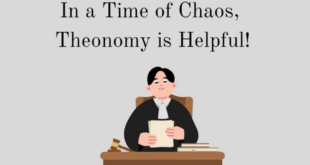“Behold, the days are coming, declares the LORD, when I will make a new covenant with the house of Israel and the house of Judah, not like the covenant that I made with their fathers on the day when I took them by the hand to bring them out of the land of Egypt, my covenant that they broke, though I was their husband, declares the LORD. For this is the covenant that I will make with the house of Israel after those days, declares the LORD: I will put my law within them, and I will write it on their hearts. And I will be their God, and they shall be my people. And no longer shall each one teach his neighbor and each his brother, saying, ‘Know the LORD,’ for they shall all know me, from the least of them to the greatest, declares the LORD. For I will forgive their iniquity, and I will remember their sin no more.” Jeremiah 31:31-34 ESV
As previously stated, avoid the danger of falling into the trap of seeing the Old Testament as disconnected from the New Testament. My hope is that throughout this study, you have been able to see that the entire Old Testament is pointing forward to Jesus. If you’ve been tracking so far, we are moving from before creation all the way until Jesus’ coming.
Where are we?
Currently, in our bible timeline, we are at a time of immanent judgment and exile for the Israelites (though this is disputed amongst scholars in this section for Jeremiah, I hold to the traditional evangelical view). That’s important for understanding texts in Scripture. Because of the lack of repentance for the sins of Israel, they will incur God’s judgment on themselves.
However, in Jeremiah 31:31-34, we see another picture of hope for the future. The term “new covenant” is used because, throughout the Old Testament, covenants were made between God and His people to maintain unity between them. So in biblical history, up until this point, there have been major covenants between Adam, Noah, Abraham, Moses, and David. But here, God presents something called the “new covenant.”
What is the “New Covenant?”
God makes it explicitly clear that His people have broken the covenant with Him. These are serious accusations. A broken covenant is a serious offense. In ancient times, covenants resembled Suzerain Vassal treaties between kings and lesser (conquered) kings: if the lesser king breaks the covenant with the greater king, the result is a loss of blessings from the king and typically insinuates war and death. The same concept applies to biblical covenants: if a covenant is broken between the greater king (God), death is the result.
But in Jeremiah 31:31-34 God presents a New Covenant, in which, God will be the acting agent of the covenant. Note how many “I will” statements there are in this short passage. He will put the law in His people and He will write the law on their hearts (Is. 31:33). He will be their God, and they will be His people (Is. 31:33). That’s a definitive statement. His plan cannot and will not waiver. He will forgive His people’s sins (Is. 31:34), making them in right standing with a holy King.
“Definite” is a good thing…
A lot of people get bent out of shape here in regard to free will and God’s sovereignty. God being the definitive being in salvation is a good thing. We should want God to overcome our rebellious will and turn us to Him. Without that, there is no hope. This does not contradict our responsibility (see the article on Mankind’s Responsibility). We still have a responsibility to choose God, for which we will be accountable. And when we choose God, it was actually Him that empowered us (John 6:44, Philippians 2:12-13).
But how will God do this? We’ll explore this in the next article.
-Austin
 Getting Job-ed
Getting Job-ed


